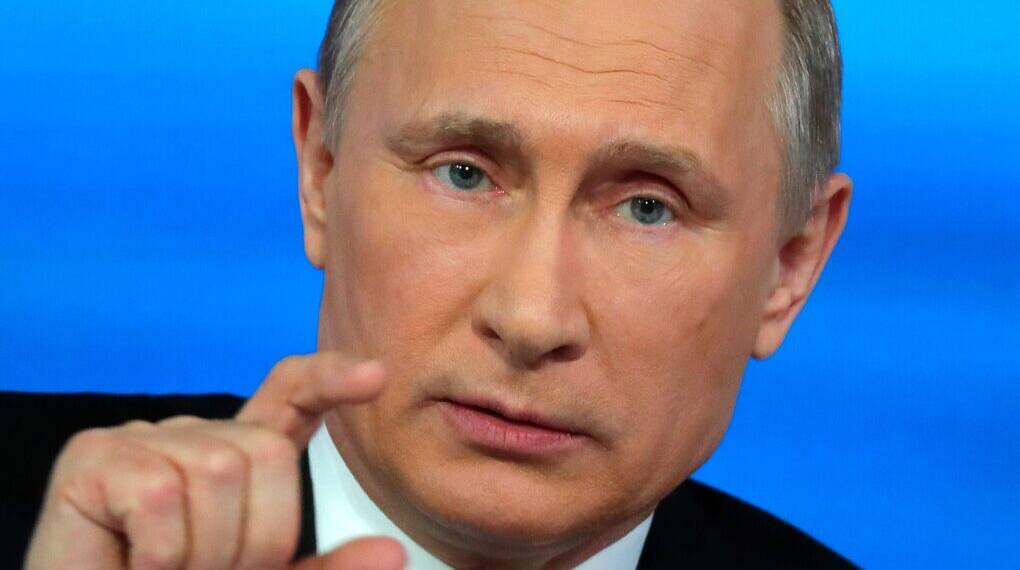As the world watches the escalation between Iran and Israel—with U.S. airstrikes intensifying the conflict—Russian President Vladimir Putin has made headlines by declaring that “Israel is almost a Russian-speaking country.” Speaking at the St. Petersburg International Economic Forum (SPIEF) 2025, Putin highlighted the presence of nearly 2 million Russian-speaking immigrants in Israel as a key factor influencing Russia’s diplomatic stance.
His comments come as Russia attempts to maintain neutrality in the Iran-Israel conflict, despite its long-standing alliance with Iran and growing global pressure following U.S. military strikes on Iranian nuclear sites during “Operation Midnight Hammer.”
Why Putin Called Israel a Russian-Speaking Country?
Putin’s statement—”Israel is almost a Russian-speaking country”—wasn’t a casual remark. It reflects a strategic demographic consideration in Russian foreign policy. Around two million people from the former Soviet Union and Russia currently live in Israel, forming one of the largest Russian-speaking communities outside the CIS (Commonwealth of Independent States).
By acknowledging this, Putin sent a clear signal: Russia’s relationship with Israel is not just diplomatic or economic—it is also deeply cultural and demographic.
This has real-world implications. Russia cannot afford to back any military action that could endanger Russian-speaking citizens in Israel. It is also a reflection of soft power diplomacy, wherein Russia seeks to protect and influence its diaspora populations worldwide.
Balancing Iran and Israel: Russia’s Middle East Dilemma
Despite Russia’s deep-rooted relationship with Iran, including its assistance in building the Bushehr nuclear reactor, Putin made it clear that Moscow is not rushing to support Iran militarily. This decision reflects Russia’s balancing act:
With Iran: Long-time strategic cooperation, arms sales, and nuclear collaboration.
With Israel: Economic ties, a strong diplomatic channel, and a massive Russian-speaking community.
Putin added that Russia also enjoys “friendly and allied ties” with the Arab and Islamic world, noting that 15% of Russia’s population is Muslim. This Islamic connection adds another layer of complexity to Russia’s position, making neutrality the most viable path.
Putin’s Peace Offer Rejected by Trump
Before the U.S. strikes, Putin had offered to mediate a ceasefire between Israel and Iran—proposing a solution that respected Iran’s right to peaceful nuclear energy while addressing Israel’s security concerns.
However, U.S. President Donald Trump rejected the idea outright, stating:
“Do me a favor, mediate your own. Let’s mediate Russia first.”
The snub reflects Washington’s skepticism of Russian diplomatic initiatives, especially in a conflict as sensitive as the one involving Tehran and Tel Aviv.
The Strategy Behind Russia’s Neutrality
Putin’s stance can be boiled down to a realpolitik approach driven by three main factors:
Russian-Speaking Population in Israel: Moscow will not jeopardize its citizens or diaspora abroad.
Strategic Ties with Iran: Maintaining its influence in the Islamic world and preserving long-standing alliances.
Multipolar Diplomacy: Reinforcing Russia’s image as a power broker, not a participant, in regional wars.
Rather than choosing sides, Russia is aiming to retain its credibility with both Israel and Iran, while showcasing its diplomatic relevance on the world stage.
Also read: Why U.S. Strike on Iran “One of the Most Daring” Attacks in Modern History?
Russia’s Soft Power in Action
Putin’s statement that “Israel is almost a Russian-speaking country” may appear surprising amid escalating tensions, but it reflects a deliberate and strategic message. Russia’s decision to remain neutral—despite strongly condemning the U.S. strikes—underscores that its stance in the Iran-Israel conflict goes beyond military calculations or geopolitical alliances. It is deeply rooted in demographic realities, national identity, and soft power influence.
By emphasizing its cultural and population links with Israel, while reaffirming friendly ties with Iran and the Islamic world, Russia is executing a delicate balancing act—one designed to protect its interests in a deeply polarized region.
Whether this approach will help de-escalate tensions or simply delay an inevitable confrontation remains uncertain. But for now, Putin has made it clear: Russia’s voice will be guided not by war drums, but by strategic calculation and cultural ties.







